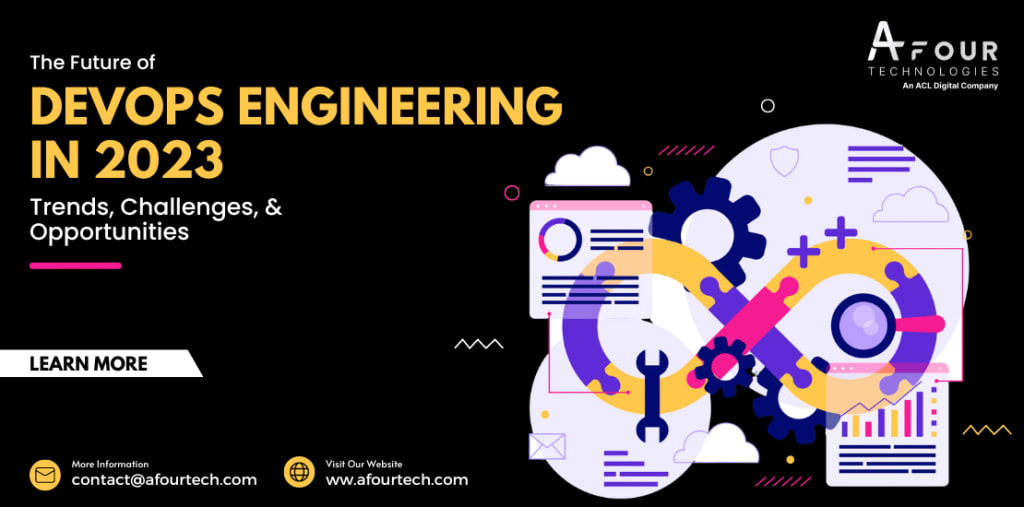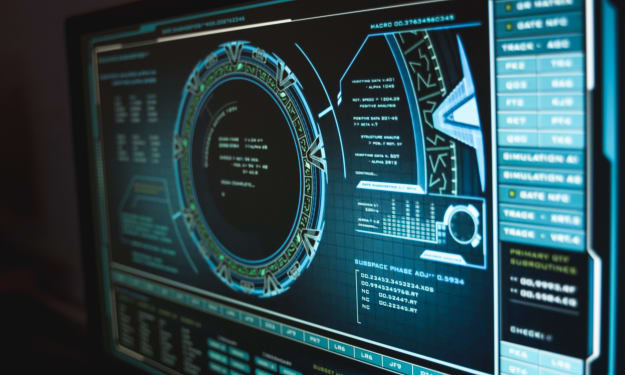
The pandemic increased DevOps' popularity on a global scale, and it is now widely recognised as an essential development technique on a global scale. A recent study predicts that between 2020 and 2026, the DevOps market would grow at a CAGR of 25% and reach a startling $ 22 billion in value.
It is clear that the scope of DevOps is changing as a result of numerous changes to software development. DevOps will also become much more efficient and agile in the years to come with automation. It will lead to better customer service, better products, and other advantages.
Let's take a closer look at the trends, obstacles, and possibilities that DevOps will face in 2023 and beyond.
Top DevOps Trends for 2023
1. AIOps and MLOps: AIOps aid in automating IT operations and processes, whereas MLOps supports the machine learning development framework. In the upcoming years, there will be a continued increase in the usage of these technologies to automate repetitive and complex processes using AI and ML.
2. Serverless Computing: Serverless computing is a method of developing and running services and applications without servers. It has developed into a popular, cutting-edge strategy for software distribution over time, and statistics predict that it will reach $30 billion by 2030.
3. Better Collaboration between Dev and Ops Team: The premise of the DevOps movement is that development and operations teams should collaborate more closely and productively. With an emphasis on enhancing communication and collaboration, this trend is likely to continue in the upcoming years.
4. DevSecOps: Development teams can address the most pressing security issues at DevOps speed thanks to the DevSecOps methodology, which integrates security into the CI/CD pipeline. One thing is certain: as it has developed from DevOps, it will continue to gather pace in the years to come.
5. Low-Code Applications: In the competitive and quick-moving software market, the low-code methodology’s adaptability gives every firm a significant competitive advantage. This is one of the most well-known DevOps future trends, which has aided in speeding up the development and deployment processes simply by designing simple and user-friendly applications.
6. Infrastructure as a Code: IaC, which entails managing infrastructure using the same version control and collaboration tools used for managing code, is a practice that is gaining steam. This makes it simpler to automate the provisioning and administration of infrastructure and enables enterprises to treat their infrastructure as first-class citizens.
7. Cloud Native Technologies: In 2023 and beyond, cloud-native technologies like containerization and microservices will probably continue to be widely used in DevOps environments because they make it easier for businesses to develop, deploy, and maintain applications.
Future of DevOps Engineering
Challenges in the Future of DevOps Engineering:
1. The increasing complexity of technology: DevOps engineers and companies must stay up to date on the newest tools, procedures, and best practises as technology develops and gets more complex. They must be able to manage complex, large-scale systems and be knowledgeable about how to integrate new strategies and tools into their existing plans.
2. Changing security requirements: DevOps practitioners will need to stay on top of the curve in terms of security best practices, given the growing significance of security in today’s digital ecosystem. This calls for a thorough knowledge of security protocols and the ability to integrate security safeguards and controls into the DevOps workflow.
3. Demands for speed and efficiency: As consumers depend more and more on technology to run their businesses, the demand for quicker and more efficient solutions will only grow. DevOps engineers and businesses will need to come up with plans for automating workflows, streamlining procedures, and enhancing the speed and efficiency of their systems in order to meet these demands.
Opportunities in the Future for DevOps Engineering:
1. Growing demand for DevOps engineers: As more businesses begin to use DevOps approaches, the demand for qualified and experienced DevOps engineers will rise. This presents a fantastic opportunity for experts in the field to advance their careers and get new experiences.
2. New tools and technologies: Thanks to the ongoing development of new tools and technologies, the field of DevOps is constantly evolving. Now, DevOps professionals can stay current with changes and expand their knowledge and skill sets.
3. Greater focus on collaboration and teamwork: There will be more emphasis on cooperation and coordination between development and operations teams in the future of DevOps engineering. This allows organizations to forge close bonds with other team members and collaborate to accomplish shared objectives.
Conclusion:
In conclusion, DevOps will surely continue to develop, bringing with it new opportunities and difficulties for those who work in the sector. And by staying current with the newest tools, technologies, and best practises, DevOps engineers can continue to thrive in this constantly evolving industry and contribute to the success of their enterprises.
If your DevOps team wishes to adopt these trends but requires assistance in any area of DevOps engineering, you may contact us at [email protected]. We would be happy to assist you.
AFour Technologies is Devops Consulting Services provider and offer the best DevOps Consulting Services in USA and India. Our Offerings are classified into four categories.
– Classical DevOps: We provide build engineering and associated automation, CI/CD pipeline designing and automation, infrastructure provisioning & configuration management and related automation.
– SysOps: We provide systems support in the form of Remote Infrastructure Management (RIM). It is aimed at monitoring and upgrading customer’s environments.
– CloudOps: We provide cloud environment-related deployment, monitoring and support services. It includes cloud platforms like Google Cloud, AWS, Azure as well as OpenStack based environment.
– DBOps: Here, our database administrator provides database development-related services and production support for the databases.
Our other services include:
• Security Testing Services
• Performance Testing Services
• UI UX Development Services
• Front End Development Services
About the Creator
Afourtech
AFour Technologies is a software development services, ISO certified company, offers Product Engineering Services with in Data Center Technologies IoT






Comments
There are no comments for this story
Be the first to respond and start the conversation.